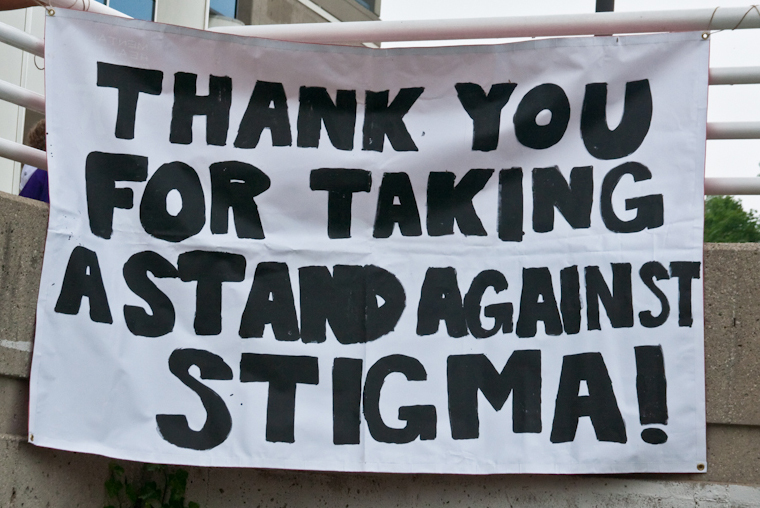
Seeking help for mental health issues can often feel like an uphill battle, a challenging step fraught with internal resistance and external pressures. Despite a growing public awareness of mental health’s undeniable importance, it’s a striking reality that many individuals still find themselves grappling with the decision to reach out for the professional support they so desperately need. This hesitation isn’t merely a matter of oversight; it’s frequently rooted in a set of common excuses and deeply ingrained misconceptions that effectively act as formidable barriers, preventing people from connecting with vital mental health resources.
At PMHC, and indeed across the entire spectrum of mental health professionals, there’s a collective understanding of these powerful deterrents. We recognize that these aren’t just minor hang-ups; they are significant mental roadblocks that keep individuals trapped in cycles of struggle, delaying or outright preventing their journey toward improved well-being. It’s time to shine a light on these pervasive narratives, to dissect why they hold so much sway, and to empower you with the clarity needed to finally set them aside.
Today, we’re diving deep into some of the most frequently heard excuses that therapists wish you would simply stop using. These aren’t just conversational fillers; they are critical points of resistance that can dramatically impact your mental health trajectory. By addressing these head-on, we aim to dismantle the barriers, clarify the misconceptions, and pave a clearer path for anyone considering mental health support. Let’s confront these common evasions and discover why letting them go is perhaps the best first step you can take towards a healthier, more fulfilling life.

1. **“I Don’t Have Time”**This excuse tops the list for many therapists, emerging as one of the most common reasons people cite for avoiding mental health help. In our increasingly fast-paced world, where demands from work, family obligations, and an array of social commitments seemingly consume every waking hour, it’s undeniably challenging to carve out space for anything new, let alone something as deeply personal as therapy. The belief that one simply doesn’t possess enough hours in the day becomes a convenient, albeit detrimental, shield against prioritizing mental well-being.
However, what many individuals overlook is the insidious long-term cost of neglecting their mental health. While skipping a therapy session might momentarily free up an hour, the underlying issues don’t vanish; they often fester, intensify, and eventually manifest as more significant, complex problems. These exacerbated mental health challenges can then demand even more substantial time, energy, and resources to address in the future, creating a vicious cycle that ultimately consumes far more of your precious time than a proactive approach ever would.
Consider therapy or counseling sessions not as another item on an already overflowing to-do list, but rather as a crucial, non-negotiable investment in your overall well-being. It’s an investment that pays dividends not just in improved mood or reduced anxiety, but also in enhanced productivity, clearer thinking, and more resilient coping mechanisms, all of which can actually create more ‘time’ in your life by reducing the debilitating effects of unchecked stress and emotional distress. Many therapists today offer a remarkable degree of flexibility, understanding the pressures of modern life, which makes this excuse less tenable than ever.
In response to the pervasive ‘no time’ narrative, the mental health field has evolved significantly. A growing number of therapists now provide flexible scheduling options designed to accommodate even the busiest lifestyles, including evening and weekend appointments that can easily fit outside of conventional work hours. Furthermore, the advent and widespread acceptance of virtual sessions have revolutionized accessibility. Teletherapy allows you to connect with a professional from the comfort of your home, during a lunch break, or even while traveling, effectively eliminating the commute and turning previously wasted pockets of time into opportunities for self-care.
Read more about: Beyond the Wake Word: Unmasking the Hidden Risks of Smart Home Devices Listening to Your Conversations

2. **“I Can Handle It on My Own”**Another extraordinarily common excuse that therapists frequently encounter is the deeply ingrained belief in absolute self-reliance. Many individuals pride themselves on their ability to manage life’s challenges independently, viewing any external assistance as a potential sign of weakness or a failure of personal fortitude. This self-reliant mindset, while commendable in many aspects of life, can become a significant impediment when it comes to navigating the often intricate and emotionally taxing landscape of mental health issues. There’s a powerful narrative in our society that encourages individuals to ‘tough it out’ or ‘pull themselves up by their bootstraps,’ which can inadvertently discourage seeking professional help.
While self-reliance is indeed a valuable trait and a cornerstone of personal strength, mental health challenges are often far more complex than typical daily hurdles. They frequently involve intricate psychological patterns, deeply rooted emotional responses, and sometimes even biological factors that are incredibly difficult, if not impossible, to effectively identify and navigate without specialized training and objective perspective. Attempting to manage severe anxiety, chronic depression, or trauma-related issues entirely on your own can be akin to trying to perform surgery on yourself; even with the best intentions and considerable intelligence, the lack of professional tools and expert insight significantly limits your chances of a successful outcome.
Ignoring or actively suppressing mental health issues in an attempt to ‘handle it on your own’ can unfortunately lead to a worsening of symptoms over time. What might begin as manageable stress can escalate into debilitating anxiety, and persistent low moods can spiral into severe depression. This sustained internal struggle not only diminishes your overall quality of life but also impacts your relationships, work performance, and physical health, creating a pervasive sense of disquiet that can become increasingly difficult to shake off. The belief that one can simply ‘will away’ complex mental health conditions often leads to prolonged suffering and increased distress.
Therapists wish to reframe this perspective: acknowledging the need for help is not a sign of weakness, but rather a profound act of self-awareness and strength. It’s a proactive, courageous step toward improving your mental health, much like seeking a doctor for a physical ailment. Professional support offers a safe, confidential, and judgment-free space where you can explore your thoughts and emotions with an expert. Therapists are equipped with a diverse array of tools and evidence-based strategies, providing you with effective coping mechanisms, communication skills, and insights that empower you to navigate life’s complexities more effectively and ultimately lead a more fulfilling life.
Read more about: The 13 Most Common Causes of Car Fires That Mechanics Want You to Know to Keep You Safe

3. **“Therapy Is Too Expensive”**The financial cost associated with therapy stands as a truly significant and often legitimate barrier for a vast number of people seeking mental health support. Mental health services, particularly those provided by private practitioners, can indeed be expensive, creating a daunting obstacle, especially for individuals who lack comprehensive insurance coverage or who are managing tight budgets. This economic reality is a valid concern, and it’s an unfortunate truth that the financial aspect can deter many from taking that crucial first step toward healing and recovery.
However, while the upfront cost can seem prohibitive, it’s essential to understand that the landscape of mental health care is far more diverse and accessible than it might initially appear. The notion that quality mental health support is exclusively reserved for those with ample disposable income or top-tier insurance is a misconception that therapists are actively working to dispel. There are numerous avenues and programs specifically designed to make therapy more affordable and within reach for a wider demographic, ensuring that financial constraints don’t become an insurmountable barrier to wellness.
One of the most effective solutions to address the cost concern is to actively explore different payment options, many of which are designed with accessibility in mind. For instance, many therapists and clinics operate on a ‘sliding scale’ fee structure. This innovative approach adjusts the cost of therapy sessions based on your income and financial circumstances, ensuring that services remain affordable for individuals at various economic levels. This means that a person with a lower income would pay less per session than someone with a higher income for the exact same quality of care.
Beyond individual practitioners, a wealth of resources exists within community health centers and non-profit organizations. These vital institutions often provide low-cost or even free mental health services, subsidized through grants, donations, or government funding, making them an excellent starting point for those facing financial hardship. Additionally, the proliferation of teletherapy platforms, while already beneficial for convenience, has also ushered in more affordable options. Online therapy services frequently offer lower session rates compared to traditional in-person therapy, as they often have reduced overhead costs, further expanding accessibility and affordability for those who might otherwise be unable to afford care.

4. **“There’s a Stigma Around Mental Health”**This excuse, while unfortunately rooted in a very real societal challenge, remains one of the most disheartening barriers to seeking mental health help for therapists to hear. Despite significant strides in recent years to raise awareness and foster open dialogue around mental well-being, a pervasive stigma still clings to mental health issues. Many individuals fear judgment, misunderstanding, or even discrimination from their families, friends, employers, or broader community if they were to admit to struggling with their mental health or seek professional support.
This fear of being labeled, ostracized, or perceived as ‘weak’ or ‘crazy’ can be incredibly powerful, creating an immense pressure to suffer in silence. The cultural narrative often dictates that mental health challenges are personal failings rather than legitimate health conditions, leading people to believe they must conceal their struggles at all costs. This internalized shame and external societal pressure can prevent individuals from acknowledging their pain, let alone reaching out for the crucial support that could alleviate it, trapping them in a cycle of isolation and worsening symptoms.
The stigma around mental health is a complex issue, often fueled by lack of education, historical misconceptions, and cultural norms that prioritize stoicism over vulnerability. It contributes to a climate where openly discussing feelings of anxiety, depression, or other psychological distress is seen as taboo, making the act of seeking therapy feel like a public declaration of a shameful secret. This societal barrier is not merely an individual excuse, but a collective challenge that requires ongoing efforts to normalize mental health conversations and celebrate the courage it takes to seek help.
Therapists understand the immense courage it takes to confront this societal stigma and step forward. They advocate for a shift in perspective, encouraging individuals to view mental health care with the same openness and acceptance as physical health care. Just as you wouldn’t hesitate to seek treatment for a broken arm, seeking support for a troubled mind is a vital step towards healing and recovery. Overcoming this excuse often begins with a personal decision to prioritize one’s own well-being over outdated societal perceptions, recognizing that your health and happiness are paramount and worthy of protection.

5. **“My Problems Aren’t That Bad”**This particular excuse, frequently whispered quietly to oneself or offered as a dismissive reassurance to concerned loved ones, is one that therapists find particularly frustrating because it often precedes a significant escalation of distress. The thought process typically involves minimizing one’s own struggles, believing that they are not severe enough to warrant professional attention, especially when compared to what others might be experiencing. It’s a common tactic of self-downplay, often born from a desire not to be a burden or from a genuine, yet misguided, belief that one’s emotional discomfort is simply ‘normal’ or ‘manageable.’
However, this underestimation is a dangerous path. Mental health challenges, like many physical ailments, rarely improve on their own and, more often than not, tend to worsen if left unaddressed. What might begin as mild anxiety or occasional sadness can, over time, subtly intensify, becoming more pervasive, debilitating, and deeply entrenched. The insidious nature of this decline means that by the time an individual finally acknowledges that their problems ‘are that bad,’ they are often in a significantly worse state than if they had sought help during the earlier, more manageable stages.
This excuse often relies on an internal, subjective scale of suffering, where individuals compare their internal experience to an imagined, more extreme scenario. They might think, “Others have it so much worse, so my feelings aren’t valid,” or “It’s not like I’m completely incapacitated, so I can cope.” This comparative thinking, while seemingly empathetic, can become a self-sabotaging mechanism that invalidates genuine distress and postpones necessary intervention. The truth is, mental well-being isn’t a competition of severity; all forms of emotional struggle deserve attention.
Therapists want to emphasize that there is no ‘minimum’ level of suffering required to seek help. If your emotional state is causing you distress, impacting your daily life, or preventing you from feeling like your best self, then it’s ‘bad enough.’ Early intervention can be incredibly effective, often leading to quicker resolution and preventing minor issues from spiraling into much larger ones. Waiting until your problems are ‘really bad’ only prolongs suffering and can make the path to recovery more arduous. Your discomfort is valid, and acknowledging it is the first courageous step toward healing, regardless of how it stacks up against anyone else’s struggles.
Now that we’ve tackled some of the most prominent excuses, it’s time to confront five more common evasions that keep individuals from reaching out for mental health support. These are not just fleeting thoughts; they’re deeply ingrained patterns of thinking that can subtly, yet powerfully, undermine your journey towards well-being. By shining a light on these, we hope to empower you with clarity and practical steps to move past these barriers.

6. **“I’ll Just Wait for It to Go Away”**This excuse is perhaps one of the most passive, yet profoundly damaging, approaches to mental health challenges. It’s the hopeful, often desperate, belief that if you simply ignore your anxiety, suppress your sadness, or push through your stress, these uncomfortable feelings will eventually dissipate on their own, like a bad dream fading with the morning light. Many individuals adopt this ‘wait and see’ strategy, convinced that time alone will heal all wounds, or that their problems aren’t significant enough to warrant immediate attention.
However, this passive waiting often leads to a far more challenging reality. Mental health issues, unlike a common cold, rarely resolve themselves without some form of intervention or active coping. Instead, they tend to fester and grow more deeply entrenched over time. What might begin as mild, manageable symptoms can gradually intensify, transforming into chronic conditions that are much harder to treat once they’ve become deeply rooted in daily life and thought patterns. This prolonged suffering not only affects your emotional state but can also begin to impact your physical health, relationships, and professional life, creating a cascade of negative consequences that could have been avoided with proactive engagement.
Therapists frequently observe that this excuse is often born from a combination of fear, denial, and a lack of understanding about how mental health conditions progress. The idea of confronting painful emotions or embarking on a therapeutic journey can be daunting, making the passive hope of self-resolution an attractive, albeit deceptive, alternative. Yet, by delaying action, you’re essentially allowing a small leak to become a flood, making the eventual repair far more extensive and difficult than it needed to be in the first place.
The key takeaway here is that your well-being deserves proactive attention, not passive neglect. If you notice persistent feelings of distress, changes in mood, sleep, or energy levels, or difficulties managing daily life, these are clear signals that your mental health requires care. Just as you wouldn’t wait for a broken bone to heal itself, addressing mental health concerns early can prevent escalation, reduce suffering, and lead to a more effective and efficient recovery process. It’s about taking control, rather than ceding it to the whims of time.
Read more about: The Unyielding Spirit of the Boss: A Definitive Retrospective of Bruce Springsteen’s Monumental Career

7. **“I Don’t Know Where to Start / What Kind of Help I Need”**The vast landscape of mental health support can feel incredibly overwhelming, especially when you’re already struggling. For many, the sheer number of options—different types of therapy, various professionals, online platforms, support groups, medication—creates a paralyzing uncertainty. This ‘analysis paralysis’ becomes a formidable excuse, leaving individuals stuck at the starting line, unsure of which path to take, or even what their first step should be, leading to prolonged inaction despite a clear need for help.
This excuse is perfectly understandable. The terminology can be confusing, and distinguishing between a psychologist, psychiatrist, counselor, or social worker, and understanding which modality (CBT, DBT, psychodynamic, etc.) might be best for your specific situation, requires a level of research that can feel impossible when mental energy is low. It’s common to feel that you need to be an expert in mental health before you can even begin to seek help, placing an unfair and unnecessary burden on yourself.
However, therapists want to reassure you that you don’t need to have all the answers before you reach out. In fact, guiding you through the options and helping you understand what kind of support is most suitable for your unique needs is a fundamental part of a mental health professional’s job. The first step doesn’t have to be a monumental decision about your entire treatment plan; it can be as simple as reaching out to your primary care physician, who can often provide initial guidance, refer you to specialists, or recommend reliable local resources.
Many online platforms and community mental health organizations also offer free or low-cost initial consultations or screening tools designed to help you navigate these choices. These resources can act as a valuable compass, pointing you in the right direction without the pressure of making an immediate, long-term commitment. Remember, the most crucial step is simply to initiate a conversation with someone who can help you demystify the process. Once you connect with a knowledgeable professional, the path forward often becomes much clearer and less daunting.

8. **“Therapy Doesn’t Really Work for Me / I’m Skeptical”**A deeply rooted excuse for some is the belief that therapy simply isn’t effective, either because they’ve had a negative experience in the past, or because they view it with general skepticism. Perhaps they tried one therapist years ago and didn’t feel a connection, or they doubt that simply ‘talking about feelings’ can truly resolve deep-seated issues. This perspective, while often coming from a place of genuine disappointment or doubt, can prevent individuals from exploring effective avenues for healing and growth.
It’s true that not every therapist is the right fit for every person, and not every therapeutic approach resonates universally. Therapy is a deeply personal process, and finding a professional with whom you feel comfortable, understood, and challenged in a supportive way is paramount. A single less-than-ideal experience shouldn’t be a definitive judgment on the entire field. The mental health profession is incredibly diverse, with numerous modalities—from Cognitive Behavioral Therapy (CBT) which focuses on thought patterns, to Dialectical Behavior Therapy (DBT) for emotional regulation, to psychodynamic therapy exploring past experiences—all designed to address different needs and personalities.
Moreover, skepticism about therapy often stems from a misunderstanding of what therapy truly entails. It’s not just passive talking; it’s an active, collaborative process where a trained professional provides a safe space, teaches coping skills, offers objective insights, and helps you develop strategies to navigate life’s challenges more effectively. It’s about building resilience, changing unhelpful patterns, and gaining a deeper understanding of yourself. The efficacy of various therapeutic approaches is extensively backed by scientific research, demonstrating significant improvements for a wide range of mental health conditions.
If you’re skeptical or had a bad past experience, consider reframing your approach. Think of it like finding the right doctor or fitness trainer: sometimes it takes a few tries to find the best match for your needs and personality. Don’t be afraid to research different types of therapy, read reviews, or even schedule initial consultations with a few different therapists before committing. Express your concerns and goals openly with potential therapists; a good professional will welcome your questions and work with you to build a trusting and effective therapeutic relationship that truly works for you.

9. **“What Will Others Think? / Fear of Social Judgment”**This excuse intertwines closely with the broader issue of mental health stigma, but focuses specifically on the deeply personal fear of how family, friends, colleagues, or one’s social circle might react if they discovered you were seeking professional help. The apprehension of being seen as ‘weak,’ ‘unstable,’ or ‘incapable’ is a powerful deterrent, often leading individuals to suffer in silence rather than risk potential judgment, misunderstanding, or even ostracism from those whose opinions they value.
This fear is not unfounded in a society that, despite progress, still harbors misconceptions and biases about mental illness. The worry that seeking help could damage one’s reputation, professional standing, or personal relationships can create an intense internal conflict, where the need for support battles against the desire for social acceptance. This pressure to maintain a facade of strength and normalcy can be incredibly isolating, pushing individuals further into their struggles rather than towards the healing they desperately need.
However, it’s crucial to consider the long-term cost of this fear. Prioritizing others’ potential judgment over your own well-being is a sacrifice that can lead to prolonged emotional distress, worsening symptoms, and a diminished quality of life. True strength often lies in the courage to be vulnerable and to prioritize one’s health above outdated societal expectations. Furthermore, the confidentiality inherent in professional therapy means that your journey is a private one, protected by ethical standards and legal obligations, offering a safe space away from prying eyes or judgmental whispers.
In many cases, the fear of judgment is often more intense than the reality. As mental health conversations become more common, you might find that those closest to you are far more understanding and supportive than you anticipate. And for those who aren’t, remember that your health and happiness are paramount. Seeking help is a profound act of self-care and resilience, demonstrating a commitment to living a healthier, more fulfilling life. It’s about reclaiming your narrative and making choices that truly serve your highest good, regardless of external perceptions.

10. **“I Just Don’t Like Talking About My Feelings”**For many, the very idea of sitting down and openly discussing deep, personal emotions with another person, even a therapist, feels incredibly uncomfortable or alien. This resistance to open communication often stems from a variety of factors: perhaps a childhood where emotions were suppressed, a cultural background that discourages vulnerability, or simply a personality type that naturally prefers to process internally. This deeply ingrained discomfort becomes a powerful excuse, halting the journey to therapy before it even begins.
While it’s perfectly natural to feel hesitant about vulnerability, especially with someone new, avoiding emotional expression can have significant repercussions for your mental and physical health. Unprocessed feelings don’t simply vanish; they often manifest in other, less healthy ways, such as chronic stress, anxiety, irritability, physical symptoms like headaches or digestive issues, or even unhealthy coping mechanisms like substance use. Therapy isn’t about forced emotional outpouring; it’s about creating a safe, non-judgmental space where you can gradually explore your inner world at your own pace.
Therapists are trained to meet you where you are. They understand that for some, the initial sessions might involve more listening than talking, focusing on building trust and rapport. The goal isn’t to force you to spill your deepest secrets immediately, but to help you develop the skills and comfort to express yourself more effectively over time. It can start with simply identifying thoughts, then linking them to feelings, and slowly, gently, moving towards a deeper understanding of your emotional landscape.
Embracing the process of opening up, even incrementally, can be incredibly liberating. It allows you to gain clarity, release pent-up emotions, and develop healthier ways of managing your internal experiences. This doesn’t mean you have to transform into an extrovert overnight or become an open book to everyone. It means finding a safe space to process what’s happening inside you, learning how to articulate your needs, and developing emotional intelligence that will serve you well in all aspects of life. It’s a powerful step towards true self-awareness and lasting emotional well-being.
As we’ve explored these common excuses, it becomes clear that while each one presents a unique barrier, they all share a common thread: they delay or prevent the crucial act of seeking support. It’s a testament to the complex internal and external forces at play when it comes to mental health. But by confronting these excuses head-on, by understanding their roots and recognizing the proactive steps we can take, we begin to dismantle them. Remember, prioritizing your mental health isn’t a luxury; it’s a fundamental necessity for a life well-lived. Taking that first step, no matter how small, is a courageous act of self-love and the beginning of a profoundly transformative journey. Your well-being is worth every effort, and there’s a world of support ready to meet you.



